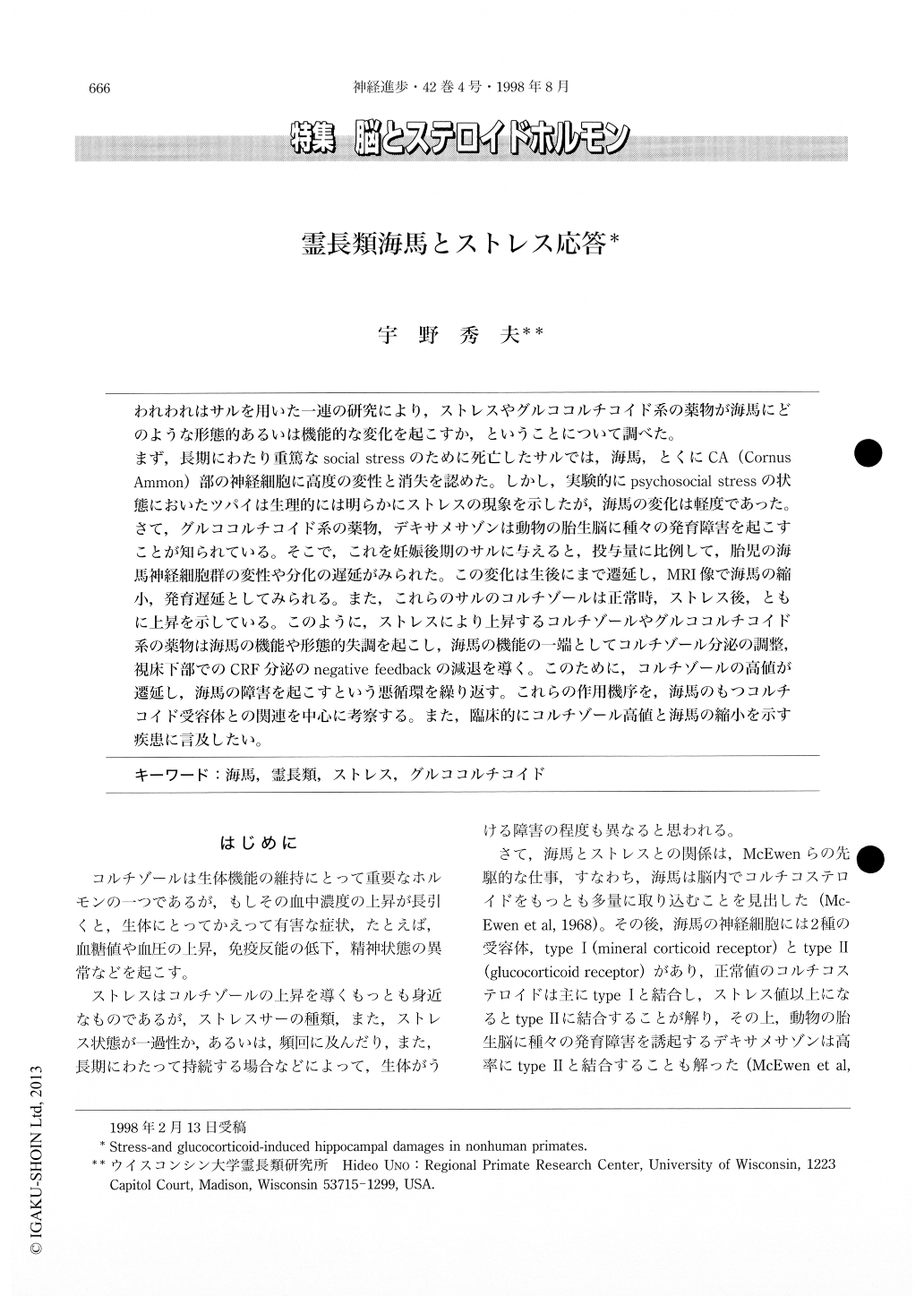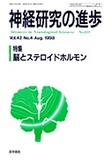Japanese
English
- 有料閲覧
- Abstract 文献概要
- 1ページ目 Look Inside
われわれはサルを用いた一連の研究により,ストレスやグルココルチコイド系の薬物が海馬にどのような形態的あるいは機能的な変化を起こすか,ということについて調べた。
まず,長期にわたり重篤なsocial stressのために死亡したサルでは,海馬,とくにCA(CornusAmmon)部の神経細胞に高度の変性と消失を認めた。しかし,実験的にpsychosocial stressの状態においたツパイは生理的には明らかにストレスの現象を示したが,海馬の変化は軽度であった。さて,グルココルチコイド系の薬物,デキサメサゾンは動物の胎生脳に種々の発育障害を起こすことが知られている。そこで,これを妊娠後期のサルに与えると,投与量に比例して,胎児の海馬神経細胞群の変性や分化の遅延がみられた。この変化は生後にまで遷延し,MRI像で海馬の縮小,発育遅延としてみられる。
The hippocampal neurons contain a high concentration of both mineral corticoid receptor (type I) and glucocorticoid receptors (type II). Although normal level of cortisol binds to type I , cortisol over stress level and exogenous synthetic glucocorticoids are largely bind to the type II receptor. Increased type II reception appears to cause either functional or structural impairment of hippocampal pyramidal neurons.

Copyright © 1998, Igaku-Shoin Ltd. All rights reserved.


